Are you considering renewing your franchise contract but feeling overwhelmed by the process? You're not aloneâmany franchisees find themselves navigating the complexities of renewal terms and conditions. Understanding the ins and outs of your contract can make a significant difference in ensuring a smooth transition. Join us as we dive into the essential elements and tips on how to approach your franchise contract renewal effectively!

Duration of Renewal Term
The duration of the renewal term for a franchise contract typically spans five years, commencing on the day following the expiration of the initial franchise agreement. This renewal period allows franchisees continued operation under the established brand name while adhering to the franchise's operational standards and guidelines. Franchisees must submit written notice of intent to renew at least 90 days before the current contract expiration date to initiate the renewal process, ensuring compliance with all financial obligations and legal requirements as outlined in the original agreement. The renewal term is subject to the successful completion of any necessary training or updates mandated by the franchisor.
Financial Agreement and Fees
Franchise contracts often delineate specific financial agreements and fees associated with renewing franchisee agreements. Key components include initial franchise fees, which can range from $10,000 to $50,000, depending on the franchise's brand reputation and established market presence. Ongoing royalty fees typically consist of a percentage of gross sales, usually around 5% to 7%, which provides continuous support and brand utilization. Marketing and advertising contributions, often calculated at an additional 2% to 5% of gross sales, are mandatory to maintain market visibility and competitiveness. Renewal fees, generally ranging from $2,500 to $10,000, ensure that the franchisee remains compliant with current brand standards and regulations. Additionally, specific conditions may apply regarding performance metrics from the previous term, renewal timelines within 30 to 90 days prior to the expiration date, and any modifications to the operational standards that must be acknowledged during the renewal process.
Performance Evaluation Criteria
Franchise contract renewal terms often involve Performance Evaluation Criteria that ensure the franchisee adheres to the standards set by the franchisor. These criteria include measurable metrics such as sales volume, customer satisfaction ratings, and compliance with operational guidelines. Average sales growth of at least 10% per annum over the previous three years may be required to demonstrate financial health. Customer satisfaction surveys reflecting a minimum satisfaction rate of 85% can highlight service quality. Additionally, adherence to brand compliance regulations, including store appearance and promotional displays, must be consistently maintained. Regular audits conducted semi-annually can assess compliance and operational efficiency, ultimately impacting the renewal decision process.
Operational and Brand Standards Compliance
In franchise agreements, operational and brand standards compliance is crucial for maintaining brand integrity and ensuring uniform customer experience across all franchise locations. Adherence to operational guidelines such as cleanliness, inventory management, and employee training is essential for the brand's reputation. Regular audits conducted by franchise corporations, typically every six months, assess compliance levels and identify areas for improvement. Franchisees are required to implement brand standards for signage, promotional materials, and product offerings to align with the overarching marketing strategy. Non-compliance can result in penalties or, in severe cases, termination of the franchise agreement, emphasizing the importance of understanding and following the established operational procedures and brand expectations.
Territory and Market Rights
Franchise agreements outline the parameters of territory and market rights essential for business operation. In defining territory, precise geographical boundaries such as regions (Northwest United States) or specific cities (Chicago, Illinois) must be detailed to prevent encroachment. Market rights should clearly establish exclusivity, outlining whether multiple franchises can operate within the same territory, fostering healthy competition or limiting saturation. Renewal terms need clarity in duration (e.g., five-year terms), performance metrics that must be met (such as annual revenue benchmarks), and conditions for renewal (e.g., no outstanding legal disputes). Additionally, any amendments or updates to trademark use, advertising contributions, and operational standards should be addressed to maintain brand integrity and marketing effectiveness.

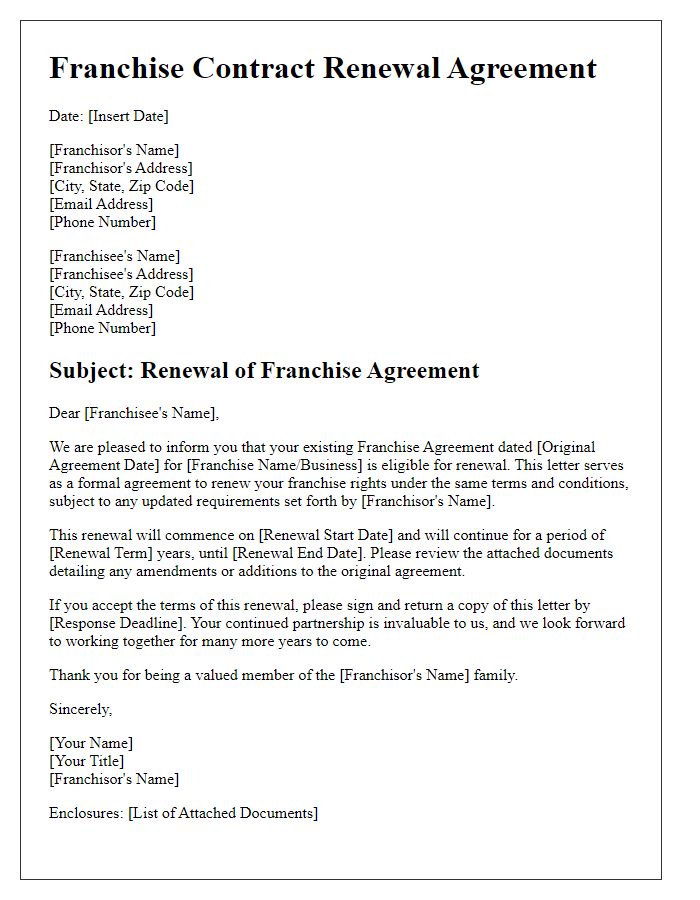
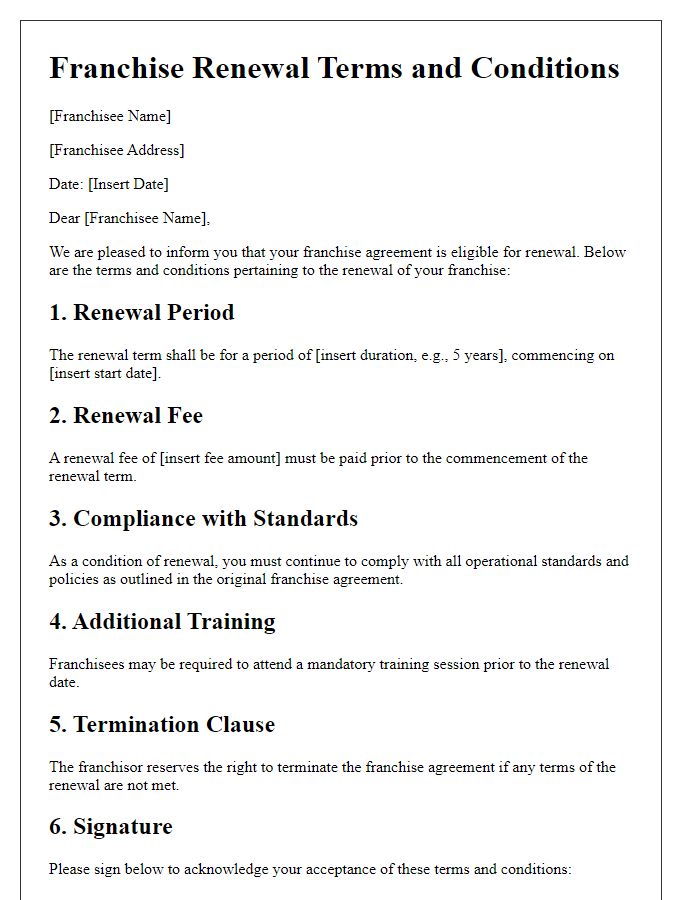
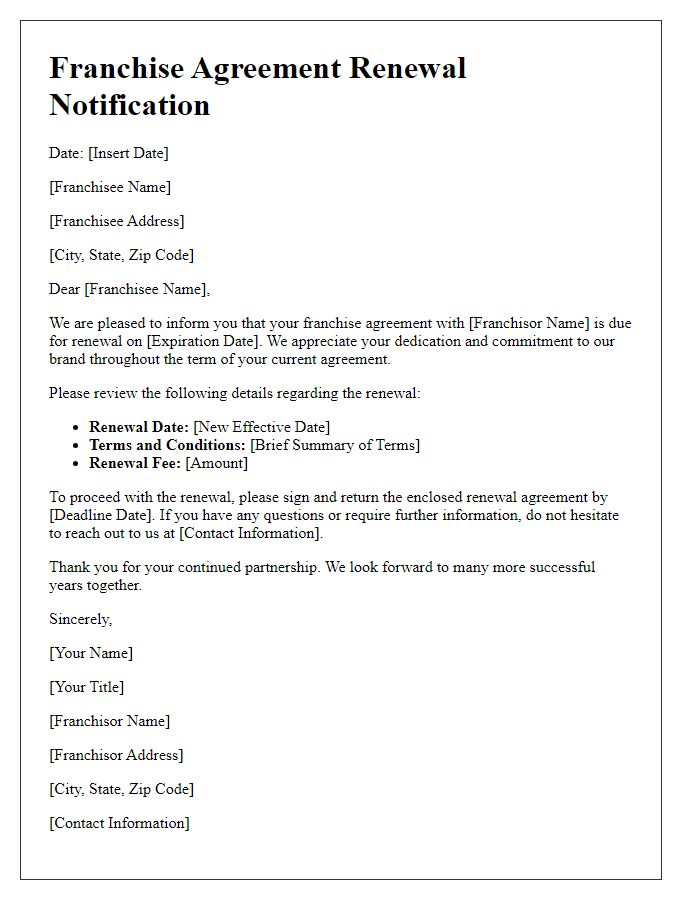
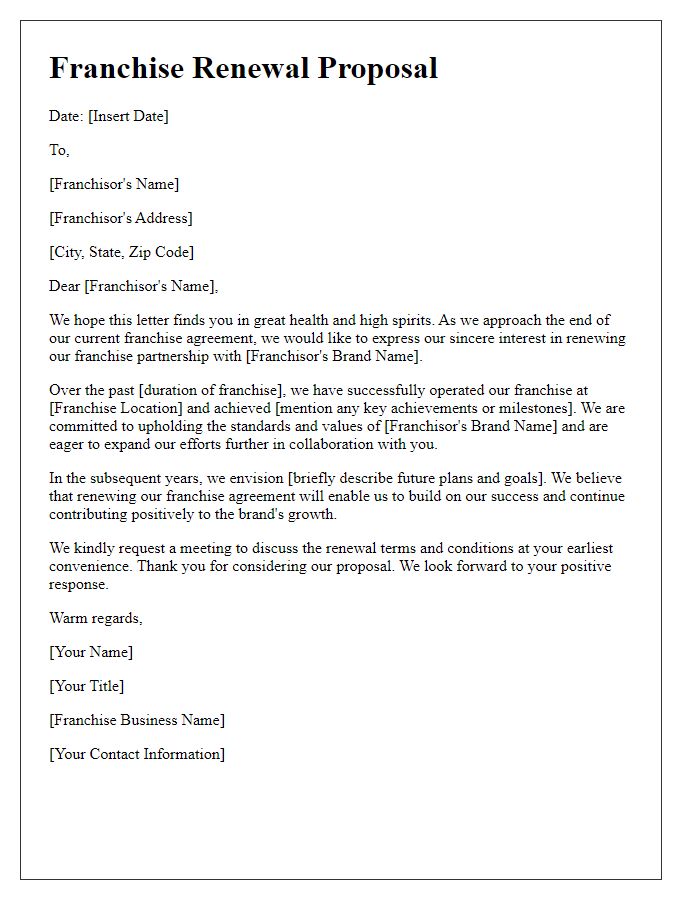
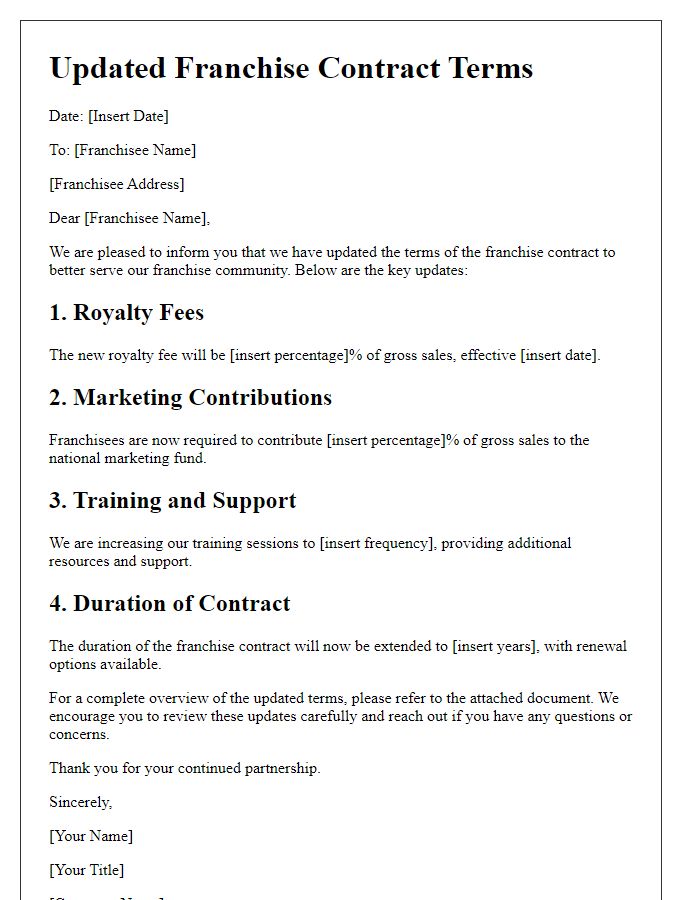
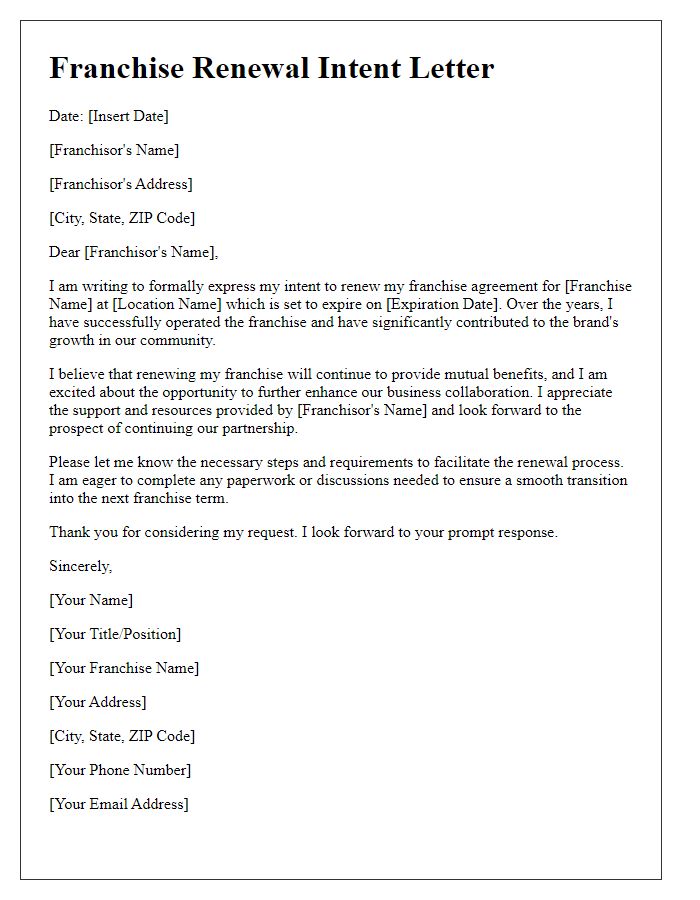
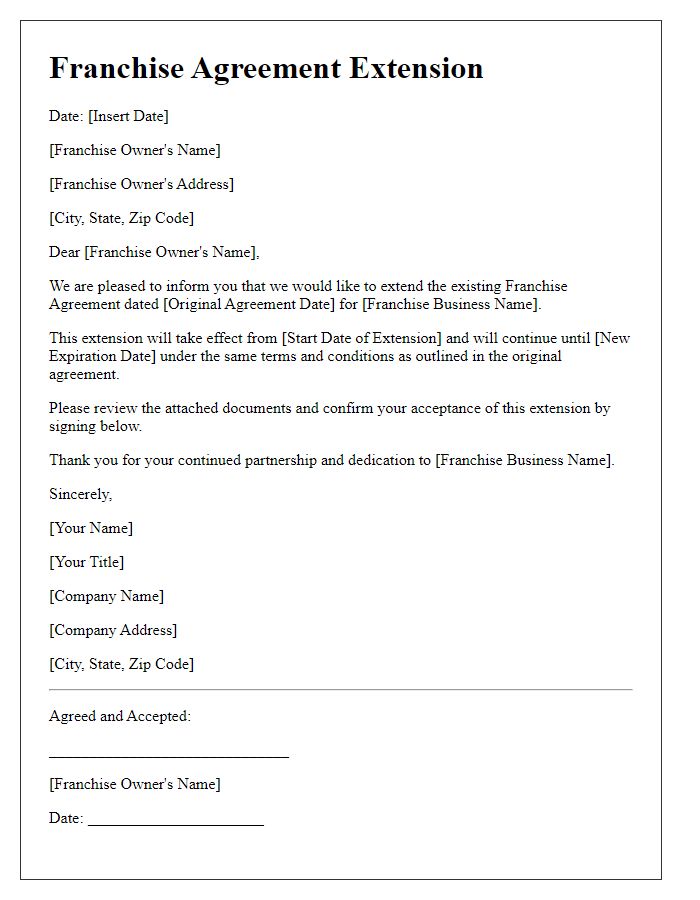
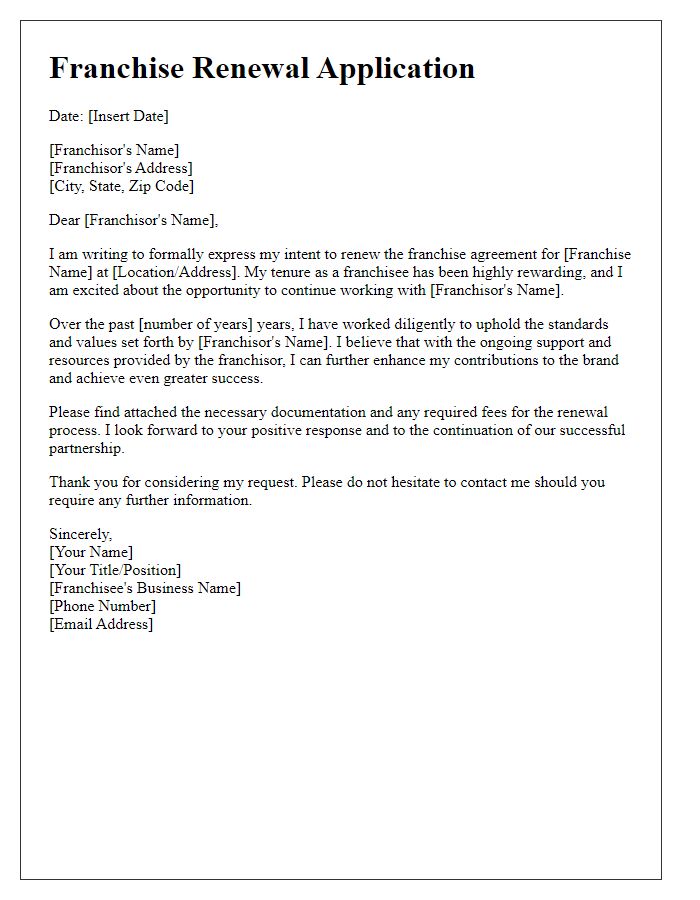
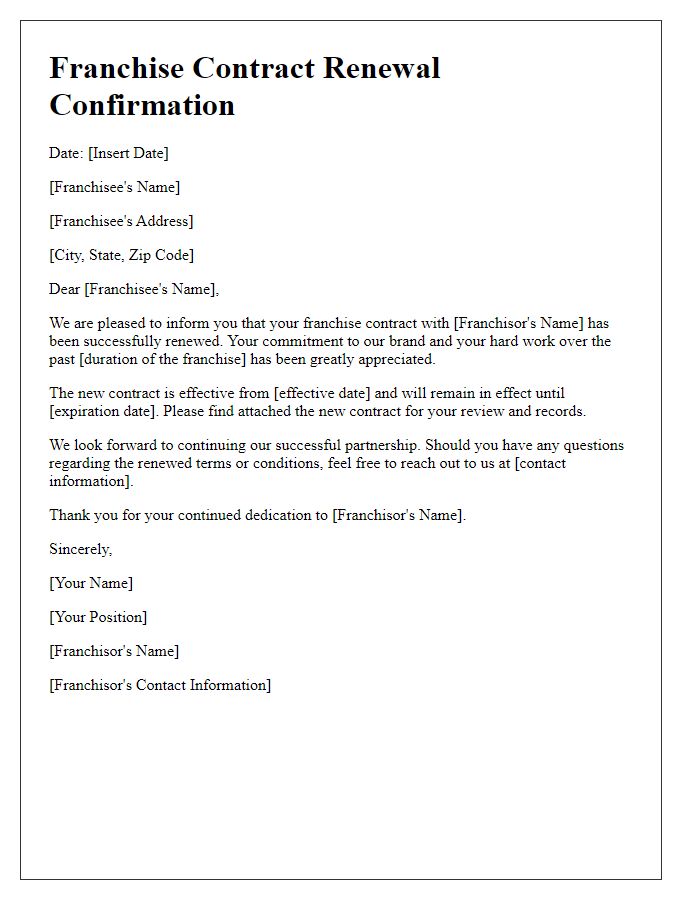
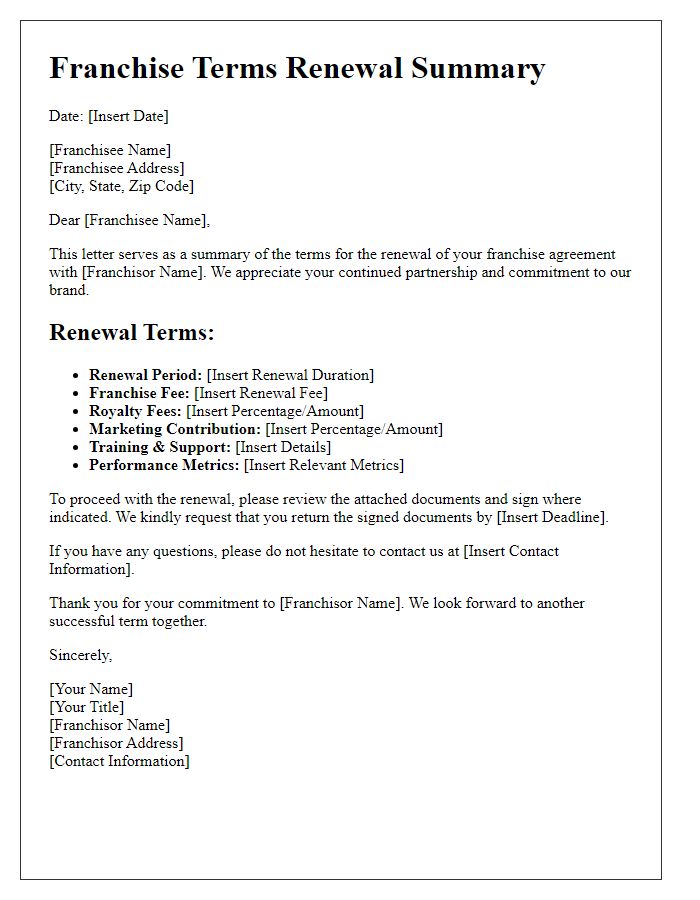


Comments